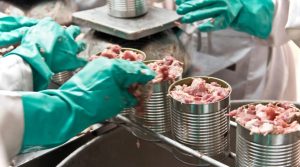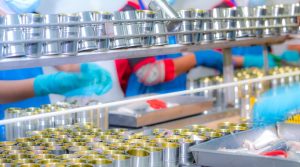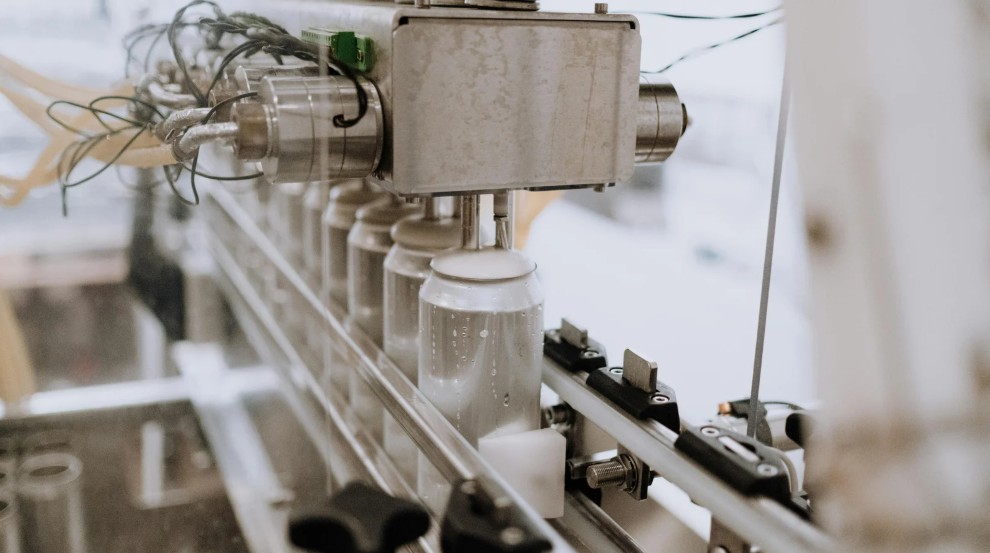Comparative Analysis of Filling Machines in Industrial Canning Lines
In the world of food production, efficiency, scalability, and quality control are paramount. As consumer demand for packaged food continues to rise, manufacturers are increasingly turning to advanced technologies to meet these needs. Filling machines, particularly those used in industrial canning lines, play a crucial role in this process.
These machines are designed to fill containers with precise amounts of product, ensuring consistency and minimizing waste. The evolution of filling machines has brought about significant improvements in the speed and accuracy of food production, making them indispensable in modern manufacturing environments.
This article delves into the intricacies of filling machines, focusing on their application in industrial canning lines, and explores how they contribute to the efficiency, scalability, and quality control of food production.
What Does the Comparative Analysis of Filling Machines in Industrial Canning Lines Reveal?
Efficiency in Industrial Canning Lines

Efficiency is a critical factor in the success of any food production line. In the context of canning lines, efficiency is achieved through the integration of advanced filling machines that are capable of operating at high speeds while maintaining accuracy.
These machines are designed to handle a wide range of products, from liquids to semi-solids, and can be adjusted to accommodate different container sizes and shapes. The automation of filling processes reduces the need for manual intervention, thereby decreasing the likelihood of human error and increasing overall productivity.
Modern filling machines are equipped with sophisticated sensors and control systems that ensure each container is filled to the exact required level. This precision not only minimizes product wastage but also ensures compliance with industry standards and regulations.
Additionally, the use of high-speed filling machines allows manufacturers to meet large-scale production demands without compromising on quality. The ability to quickly switch between different product lines further enhances the flexibility and efficiency of canning operations.
Scalability in Food Production
Scalability is another crucial aspect of food production that is greatly enhanced by the use of advanced filling machines. As consumer preferences and market demands evolve, manufacturers must be able to scale their operations up or down quickly and efficiently.
Filling machines used in canning lines are designed with scalability in mind, allowing for easy adjustments to production volumes without significant downtime or reconfiguration.
The modular design of many modern filling machines enables manufacturers to expand their production capabilities by adding additional units or upgrading existing equipment. This flexibility is essential for businesses looking to grow their operations or enter new markets.
Furthermore, the ability to integrate filling machines with other automated systems, such as labeling and packaging equipment, streamlines the entire production process, making it easier to scale operations in response to changing market conditions.
In addition to hardware scalability, software advancements have also played a significant role in enhancing the scalability of filling machines. Advanced control systems and data analytics tools provide manufacturers with real-time insights into production performance, enabling them to make informed decisions about scaling their operations.
This data-driven approach ensures that production lines can be optimized for maximum efficiency and output, regardless of the scale of operations.
Quality Control in Canning Lines

Quality control is a fundamental aspect of food production, and filling machines play a vital role in ensuring that products meet the highest standards of quality and safety. In canning lines, filling machines are equipped with advanced technologies that monitor and control the filling process to ensure consistency and accuracy.
These machines are capable of detecting and correcting any deviations from the desired filling parameters, thereby preventing defects and ensuring that each product meets the required specifications.
The integration of quality control systems within filling machines allows for real-time monitoring of the production process. This capability enables manufacturers to identify and address potential issues before they impact the final product.
For example, sensors can detect variations in product viscosity or container alignment, triggering automatic adjustments to maintain optimal filling conditions.
This proactive approach to quality control not only enhances product quality but also reduces the risk of costly recalls or rework. Furthermore, the use of filling machines in canning lines supports traceability and compliance with industry regulations.
By capturing and storing detailed production data, manufacturers can easily track and verify the quality of their products throughout the production process. This transparency is essential for maintaining consumer trust and meeting regulatory requirements in the highly competitive food industry.
Conclusion
In conclusion, filling machines are a cornerstone of modern industrial canning lines, offering significant benefits in terms of efficiency, scalability, and quality control. As technology continues to advance, these machines will play an increasingly important role in helping manufacturers meet the growing demands of the food production industry.
By investing in state-of-the-art filling machines, businesses can enhance their production capabilities, improve product quality, and remain competitive in an ever-evolving market.







